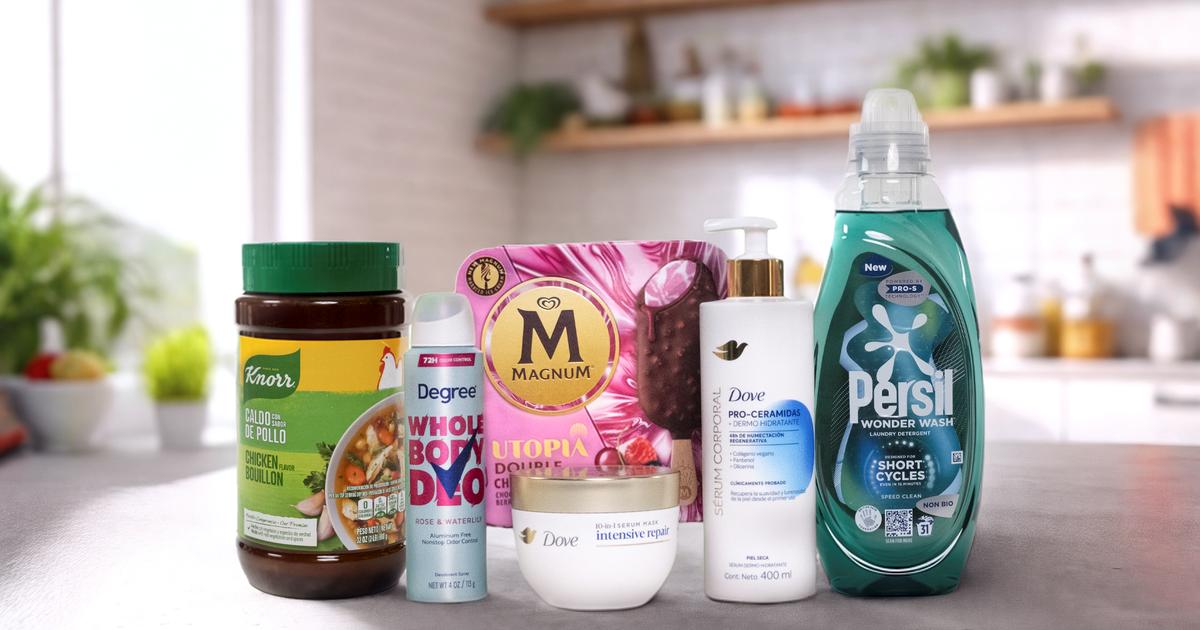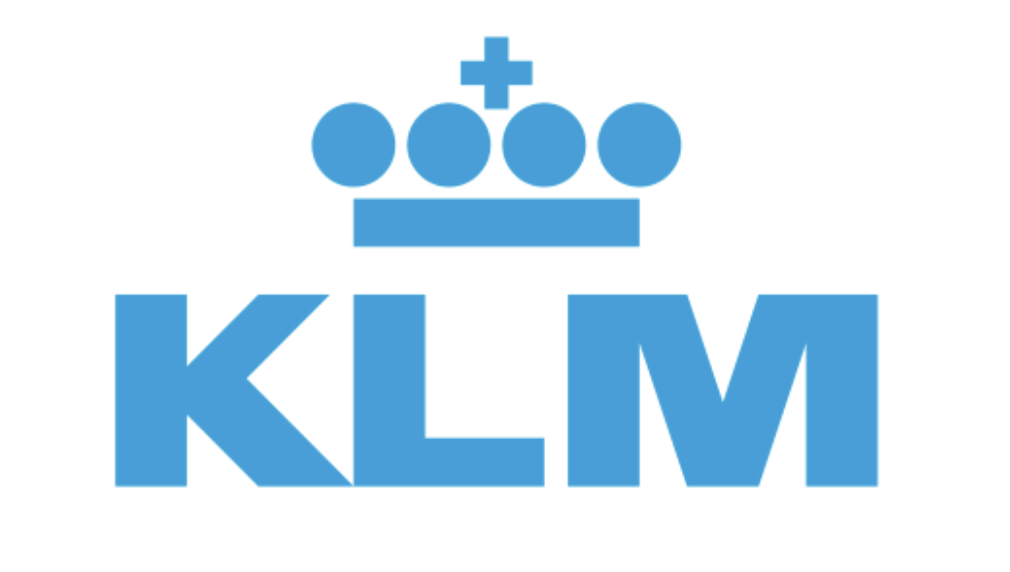Statement from Fernando Fernandez, CEO
“We continued to outperform in developed markets in the third quarter, led by our strong innovation programme, and, following decisive interventions, stepped up our emerging markets performance with a return to growth in Indonesia and China. Growth was broad based across all Business Groups and driven by our Power Brands.
“Our performance excluding Ice Cream showed good sequential improvement, with a step up in volume growth. We expect to complete the Demerger of the Ice Cream business by the end of the year. This will create a simpler Unilever, with a sharper focus and structurally higher margin profile.
“We’re shaping a brand portfolio that’s built for the future – with more Beauty, Wellbeing and Personal Care, prioritising premium segments and digital commerce, and anchoring our growth in the US and India. By putting desire at scale at the core of our strategy, and executing with excellence across every channel, we’re setting Unilever up to win.”
Outlook
For full year 2025, our outlook is unchanged, and applies both including and excluding Ice Cream.
We expect underlying sales growth to be within our range of 3% to 5%. Second half growth is expected to be ahead of the first half, despite subdued market conditions. This reflects our continued strength in developed markets and improving performance in emerging markets.
We continue to anticipate an improvement in underlying operating margin for the full year, with second half margins of at least 18.5% (or at least 19.5% excluding Ice Cream), a significant improvement versus the second half of 2024.
Third Quarter Review: Unilever Group
Growth
Underlying sales growth in the third quarter was 3.9%, with 1.5% from volume and 2.4% from price. All Business Groups delivered underlying sales growth above 3% and Power Brands, which contributed 78% of turnover, saw underlying sales growth of 4.4%, 1.7% from volume and 2.6% from price.
Underlying sales growth was 4.0% excluding Ice Cream, with 1.7% from volume and 2.2% from price, representing a sequential improvement from 3.1% in the second quarter.
Beauty & Wellbeing accelerated underlying sales growth to 5.1%, with 2.3% from volume and 2.7% from price, led by double-digit growth in: Dove hair, Vaseline, Liquid I.V., Nutrafol, Hourglass, and K18. In Personal Care underlying sales grew 4.1%, with 1.0% from volume and 3.1% from price, as Dove’s premium innovations in both deodorants and skin cleansing continued to perform well.
Home Care delivered underlying sales growth of 3.1%, with 2.5% from volume and 0.6% from price, supported by double-digit growth from Cif and Domestos. In Foods, underlying sales growth of 3.4%, with 1.3% from volume and 2.1% from price, was led by strong momentum in Hellmann’s. Ice Cream delivered 3.7% underlying sales growth. This was led by price as the business lapped a mid-single digit volume comparator.
Developed markets (44% of group turnover) underlying sales growth was 3.7%, with 2.7% from volume and 1.0% from price. This was led by a strong performance in North America, with volume-led underlying sales growth of 5.5% driven by Personal Care and Beauty & Wellbeing. In Europe, underlying sales growth was 1.1% against a strong comparator in the prior year.
Emerging markets (56% of group turnover) underlying sales growth stepped up sequentially to 4.1%, 0.6% from volume and 3.5% from price. In India underlying sales growth was 2%, reflecting a transitory negative impact on sales growth from Goods and Services Tax reforms. The reforms are anticipated to support long-term demand improvement across key categories, with trading conditions expected to normalise from November.
China delivered low-single digit underlying sales growth. We are seeing early success from our more focused and tailored go-to-market approach and the premiumisation of our portfolio. Indonesia returned to growth, driven by our extensive reset of the business and against a softer comparator, with underlying sales growth of 12.7%. Latin America declined -2.5%, against a backdrop of challenging economic conditions, and we expect to see improvement during 2026.
Turnover was €14.7 billion, down -3.5% versus the prior year, including -6.1% from currency and -1.0% from disposals net of acquisitions.
Ice Cream Demerger
The Demerger of Unilever’s Ice Cream business will make Unilever a simpler, more focused company and create a world-leading Ice Cream business, The Magnum Ice Cream Company (TMICC). As previously announced, there has been a revision to the timetable for the Demerger as a result of the ongoing US federal government shutdown. All preparatory work remains on track and progressing well and we remain committed to and confident of implementing the Demerger in 2025. We will provide further updates on the revised timetable as soon as practicable.
Qualifying Shareholders that are on the Unilever register of members as at the Demerger Record Time will receive one TMICC Share for every five Unilever Shares that they hold. Likewise, qualifying ADS Holders will receive one TMICC Share for every five Unilever ADSs that they hold.
Upon Demerger Unilever will retain a stake of c.19.9% in TMICC, for a period of up to five years. Over time, the retained stake will be sold down in an orderly and considered manner to pay separation costs and maintain capital flexibility through a reduction in net debt. The retained stake demonstrates our support and belief in TMICC.
We expect the Ice Cream Business Group to be reported on by Unilever as a discontinued operation from the fourth quarter.
Unilever share capital consolidation
Unilever expects to consolidate its share capital following completion of the Demerger, as approved by shareholders on 21 October. This share consolidation, which will reduce the total number of shares in issue, is designed to maintain comparability between Unilever’s share price, earnings per share and dividends per share before and after the Demerger. The consolidation is expected to become effective the day after the commencement of dealings in TMICC shares.
Productivity programme
Our productivity programme, launched in 2024 to simplify the business and further evolve our category-focused business model, remains ahead of plan in its delivery of €800 million of savings. We continue to expect around €650 million of savings by the end of 2025. The remaining €150 million of savings is to be delivered in 2026. For full year 2025, we now anticipate lower restructuring costs of around 1.2% of turnover.
Capital allocation
We continue to undertake targeted acquisitions to enhance focus and growth opportunities in selected areas. In September, we completed the previously announced acquisition of personal care brand Dr. Squatch as well as the sale of The Vegetarian Butcher.
The quarterly interim dividend for the third quarter is €0.4528, in line with Q2 2025 and up 3.0% versus Q3 2024. It is anticipated that Unilever will pay its quarterly dividend for Q4 2025 in full despite the expected completion of the Ice Cream Demerger in the fourth quarter.
Third Quarter Review: Business Groups
Beauty & Wellbeing (22% of Q3 turnover)
In Beauty & Wellbeing, we focus on three key priorities: premiumising our core Hair and Skin Care portfolios by emphasising brand superiority; fuelling the growth of our Prestige Beauty and Wellbeing portfolios with selective international expansion; and, continuing to strengthen our competitiveness through innovation and a social-first approach to consumer engagement.
Beauty & Wellbeing underlying sales grew 5.1% with 2.3% from volume and 2.7% from price. Growth accelerated versus the first half, led by double-digit growth in Dove hair, Vaseline, Liquid I.V., Nutrafol, Hourglass, and K18.
Hair Care was flat, with performance varying across brands. Dove grew double-digit with balanced volume and price supported by the successful rollout of its new fibre repair technology range. Tresemme grew low-single digit as strong momentum in styling and treatments was partially offset by a volume decline in the US as we took corrective pricing actions. Market softness in Brazil and China continued to impact Sunsilk and Clear, resulting in declines for both brands.
Core Skin Care grew mid-single digit with balanced volume and price. Vaseline grew double-digit, driven by volume. This growth was supported by premium innovations, including its new Cloud Soft Light Moisturiser in India.
Prestige Beauty grew mid-single digit led by volume as the prestige beauty market showed gradual improvement. Growth is varied with brands including Hourglass and K18 continuing to deliver double-digit growth, while Paula’s Choice and Dermalogica returned to low-single digit growth after declining in the first half.
Wellbeing delivered strong double-digit growth led by Liquid I.V. and Nutrafol, with significant household penetration gains in both brands. Liquid I.V.’s sugar-free range, which launched in mid-2023, continues to perform very well and now accounts for nearly 30% of total brand sales.
Personal Care (22% of Q3 turnover)
In Personal Care, we focus on winning with science-led brands that deliver unmissable superiority to our consumers across Deodorants, Skin Cleansing, and Oral Care. Our priorities include developing superior technology and multiyear innovation platforms, leveraging partnerships with our customers, and expanding into premium areas and digital channels.
Personal Care underlying sales grew 4.1%, with 1.0% from volume and 3.1% from price. Strong performance in North America and Asia Pacific Africa was partially offset by a decline in Latin America. Dove grew mid-single digit driven by the continued success of its premium innovations.
Deodorants grew low-single digit with positive price and flat volume. North America remained strong led by Dove, which was supported by the ongoing development of its whole-body range. This growth was partially offset by a decline in Latin America, where we continue to gain share despite a decline in category volume.
Skin Cleansing grew low-single digit driven by price. Dove grew mid-single digit led by continued success from its premium innovations and the launch of unique, limited-edition seasonal body wash ranges. Lifebuoy grew low-single digit as volumes remained subdued following commodity-driven price increases.
Oral Care grew high-single digit, led by Pepsodent and CloseUp. Growth was supported by continued success in premium innovation including whitening and naturals ranges.
Home Care (19% of Q3 turnover)
In Home Care, we focus on delivering for consumers who want superior products that are sustainable and great value. We drive growth through unmissable superiority in our biggest brands, in our key markets and across channels. We have a resilient business that spans price points and grows the market by premiumising and trading consumers up to additional benefits.
Home Care underlying sales grew 3.1%, with 2.5% from volume and 0.6% from price. Growth was led by sequential improvement in several key markets in Asia Pacific Africa, while a subdued market and pricing actions taken to restore competitiveness continued to impact performance in Brazil.
Fabric Cleaning was flat. Europe grew mid-single digit as the rollout of Wonder Wash continues to drive volume and competitive momentum. Wonder Wash is expected to reach 30 markets by the end of the year. This growth was partially offset by Brazil which remained a drag due to slow market conditions and pricing actions taken to restore competitiveness.
Home & Hygiene grew mid-single digit with balanced volume and price. Growth was led by Cif and Domestos, both delivering double-digit growth. Cif Infinite Clean, a multi-purpose cleaner powered by probiotics, has now rolled out across major European markets and is showing strong early results.
Fabric Enhancers grew high-single digit with continued volume led growth from Comfort.
Foods (21% of Q3 turnover)
In Foods, our strategy is to deliver consistent, competitive growth by offering unmissably superior products through our biggest brands. We do this by reaching more consumers and focusing on top dishes and high consumption seasons to satisfy consumers’ preferences on taste, health and sustainability; while delivering productivity and resilience in our supply chain.
Foods underlying sales grew 3.4%, with 1.3% from volume and 2.1% from price. Growth was led by strong momentum in Hellmann’s and a gradual recovery in key markets in Asia Pacific Africa.
Condiments delivered mid-single digit growth, driven by positive volume and price. Hellmann’s continued to perform well with mid-single digit growth led by volume. This was supported by competitive growth in developed markets and the ongoing success of the flavoured mayonnaise range, which grew strong double-digit, with particularly strong growth in Brazil.
Cooking Aids grew low-single digit, with positive volume and price. Knorr grew low-single digit supported by continued momentum in the US and the brand’s Unlimited Time Menu campaign, as well as recovery in Indonesia.
Unilever Food Solutions delivered low-single digit growth with positive volume and price. This was supported by growth in North America and China, which delivered low-single digit growth in the context of subdued markets.
Ice Cream (16% of Q3 turnover)
In Ice Cream, we are focused on continuing to strengthen the business in preparation for Ice Cream’s demerger in 2025. We are doing this by developing an exciting product pipeline, designing more efficient go-to-market strategies, optimising our supply chain, and building a dedicated sales team globally. The separation will create a world-leading business, operating in a highly attractive category with five of the top ten selling global ice cream brands.
Ice Cream underlying sales grew 3.7%, with 3.7% from price and flat volume as the business lapped a mid-single digit volume comparator. This competitive growth was driven by the continued success of its innovations and ongoing operational improvements.
In-home Ice Cream delivered low-single digit growth while Out-of-home Ice Cream grew mid-single digit. Cornetto led performance with high-single-digit growth, supported by the ongoing success of new flavours and formats across Europe and Asia. Ben & Jerry’s grew mid-single digit supported by the ongoing success of innovations launched in the first half, including new dairy and non-dairy flavours and Scoopapalooza, a mega pint format driving sharing occasions in the US. Magnum and Wall’s grew low single-digit against a strong prior year comparator.
As of 1 July, the Ice Cream Business Group transitioned into a standalone operating company within Unilever: The Magnum Ice Cream Company. The Demerger of TMICC is expected to complete in 2025.
We expect the Ice Cream Business Group will be reported on by Unilever as a discontinued operation from the fourth quarter.
Related Links






